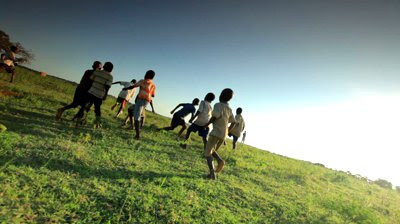We live our lives surrounded by labels. We see them in supermarkets, advertisements, and we even use them subconsciously throughout the day. However, we never stop to realize the dangers of using labels as they apply to people, and more specifically, to children. In school, labeling manifests itself as peer pressure for children to do better and meet the expectations of parents, teachers and people who administer state and national exams.
Often in camping, we tend to
label children without realizing the dangers inherent in such pigeonholing.
From lowering self-esteem to eliminating motivation, labeling children can be detrimental.
I.
When you label a child, it closes the mind of
the person doing the labeling. Once you have decided that a child acts a
certain way, lacks certain athletic ability, or does not know how to get along
with his or her peers, there is little that the youngster can do to change your
mind. This makes it virtually impossible for the child to rise to the level of
expectation you have for the other campers. It is important to remember that NO
ONE rises to LOW expectations.
II.
Children who are labeled do not always make it
obvious that their feelings are hurt. They might not be able to verbalize their
emotions and some have been negatively labeled so often in their lives, they
don’t even show how they feel in their expressions. This makes it very
difficult to see how much damage is actually being done to the individual
involved.
III.
Contrary to what some believe, even POSITIVE
labeling may result in a negative outcome. A camper who is labeled a “jock” or
super athlete will feel an enormous amount of pressure to score the winning
touchdown, hit the winning home run, for fear of losing the label of “best
athlete in the group”. We have seen what these pressures to perform at high
levels have done to professional athletes; imagine what they do to a child!
Camp and school must always be a place where children constantly feel
safe both physically AND emotionally.
You cannot have one without the other! A young person must feel SAFE TO FAIL. It is then the responsibility of the
caretaker, be it a counselor, group leader, or director to assist the camper in
navigating the skills necessary to improve in whatever area is deficient.
Whether it is sports, communicating with peers or adults, this is the time to
take advantage of the situation and help the child gain confidence by teaching
positive ways to address the situation.
It is most important to note that the same dangers of
labeling hold true to staff members. How often do we call one counselor or
group leader a superstar, while we say another is lazy? When a staff member
gets wind of that kind of negativity, what is his/her motivation to try harder?
We must ask ourselves what we can do to bring poor performing staff members to
a higher level.
Since it takes TEN
positive strokes to make up for ONE
negative stroke, it is most important that we focus on the positive whenever
possible and leave the labels where they belong…..on the Campbell ’s soup can!


